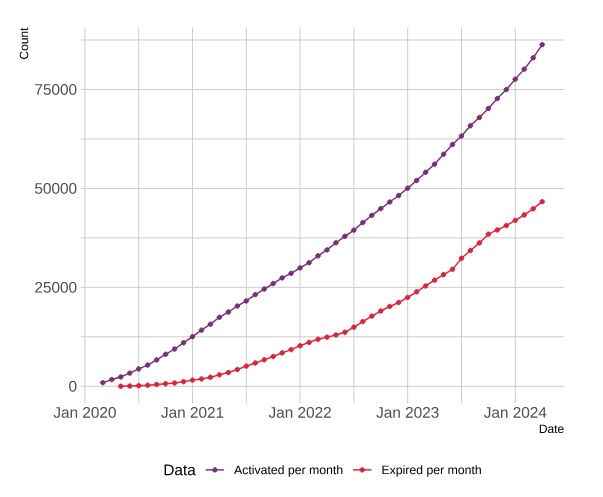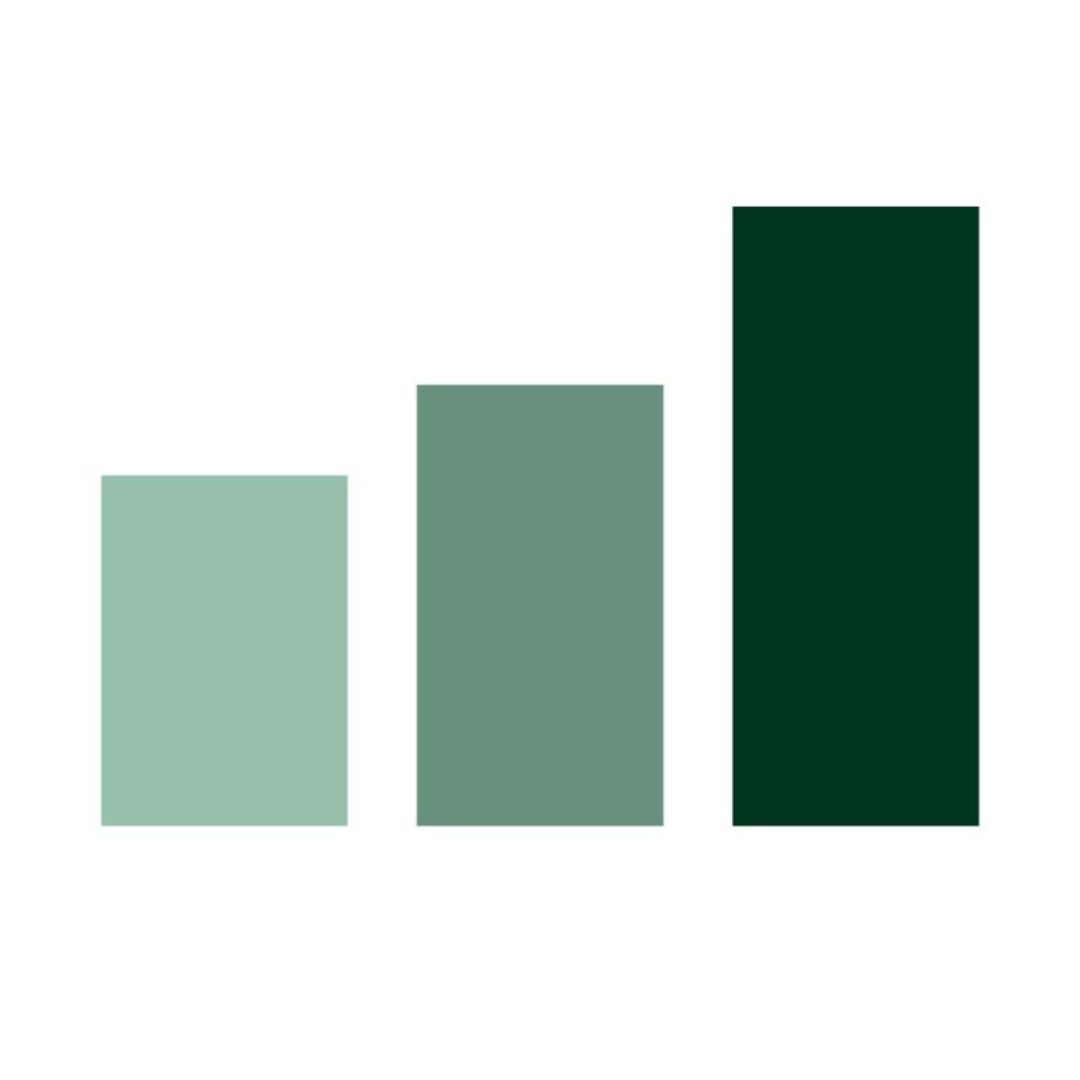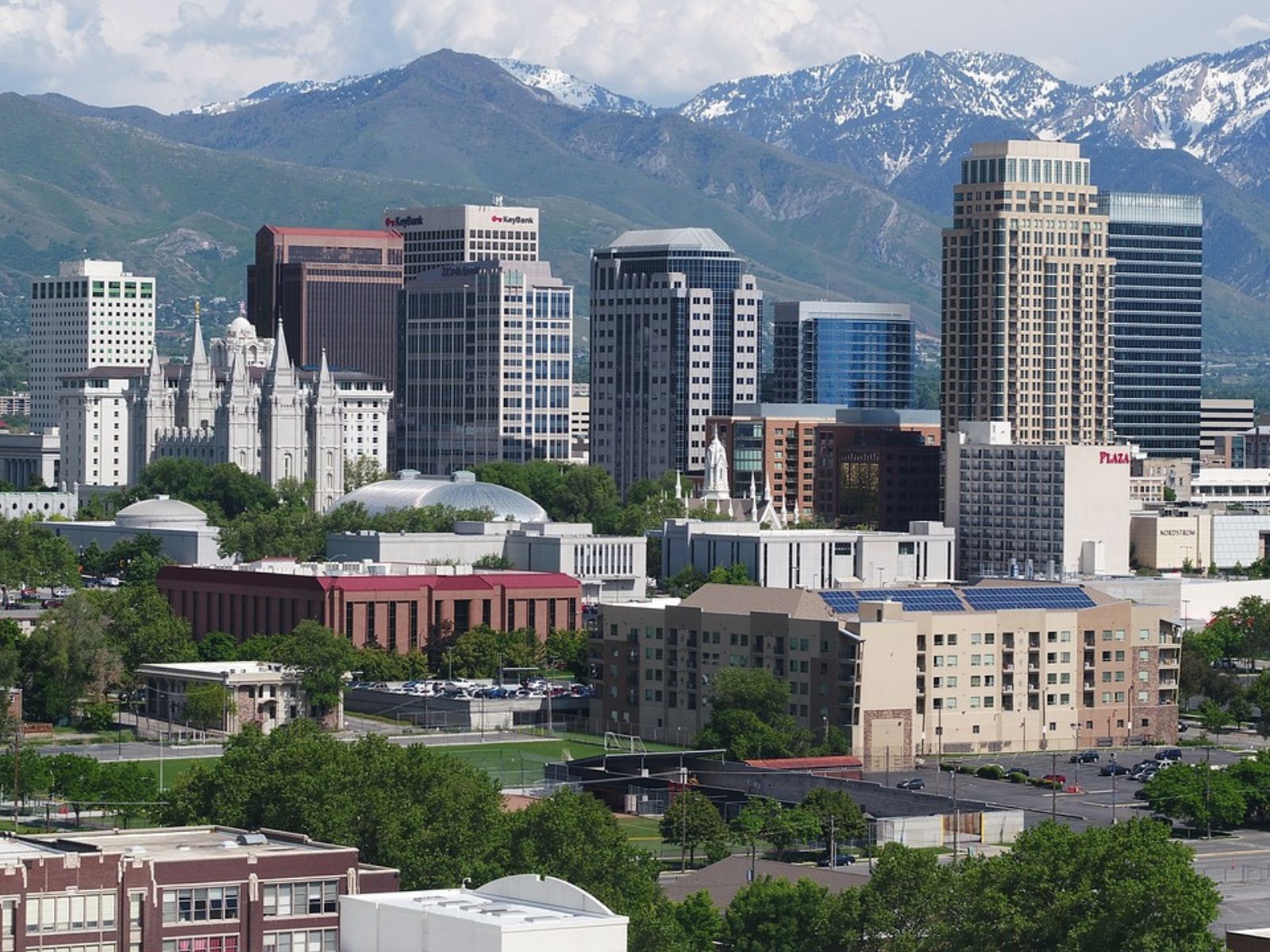According to the most recent monthly report from the Utah Department of Health and Human Services (April 2024), the state has registered 86,335 medical cannabis patients. Additionally, the state has registered 955 ‘Qualified Medical Providers’, 919 ‘Pharmacy Agency’, and 77 ‘Pharmacy Medical Providers.’
Below is a graph listing Utah’s medical cannabis patient numbers over time:

Below is a breakdown of current Utah medical cannabis patient numbers by age group:

Utah’s medical cannabis program generated $138 million in revenue from medical cannabis sales in 2023, Richard Oborn, director of the Center for Medical Cannabis at the state health department, previously stated according to initial reporting by Axios.
On November 6, 2018, voters in Utah approved Proposition 2, which legalized the use of medical cannabis by qualified patients. Proposition 2 went into effect on December 1, 2018, however, a special legislative session was convened shortly after the new law went into effect.
Utah lawmakers replaced Proposition 2 with a different measure, which was reportedly agreed to by both proponents and opponents of Proposition 2 in Utah’s Legislature. The replacement legislation installed stricter rules on patient access to medical cannabis, as well as a greater level of state oversight on Utah’s medical cannabis program.
In 2019, Gov. Gary Herbert (R) signed SB 161 which made several modifications to Utah’s medical cannabis program, including a prohibition on discrimination against medical cannabis patients in Utah’s family court system.
On February 28, 2020, Gov. Herbert (R) signed SB 121, which allowed medical cannabis flower to be dispensed in child-proof bottles, allowed physicians to recommend medical cannabis to more patients, and removed criminal penalties from registered patients with THC metabolites in their system who are not impaired.
Utah’s Department of Agriculture and Food recently published the 2023 Utah medical cannabis market analysis. Below are some of the reports major findings:
- Utah’s medical cannabis patients pay less for medication, falling in the bottom ten states for amount paid monthly on cannabis
- 58% of patients reported there was plenty of supply of medical cannabis products
- 74.5% of patients did not feel the need to travel outside of the state to get the medical cannabis products they need
- 41% of patients reported having a limited or very limited supply of medical cannabis products they wanted to purchase
- 25% of patients are still traveling outside of Utah to get cannabis products due to cost
- 59% of cannabis products were acquired from illicit sources rather than regulated pharmacies

